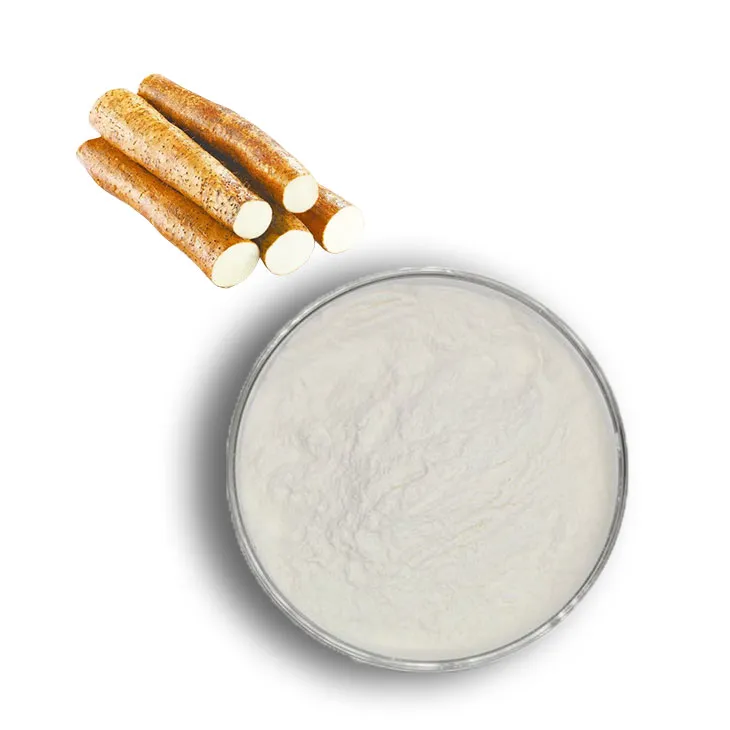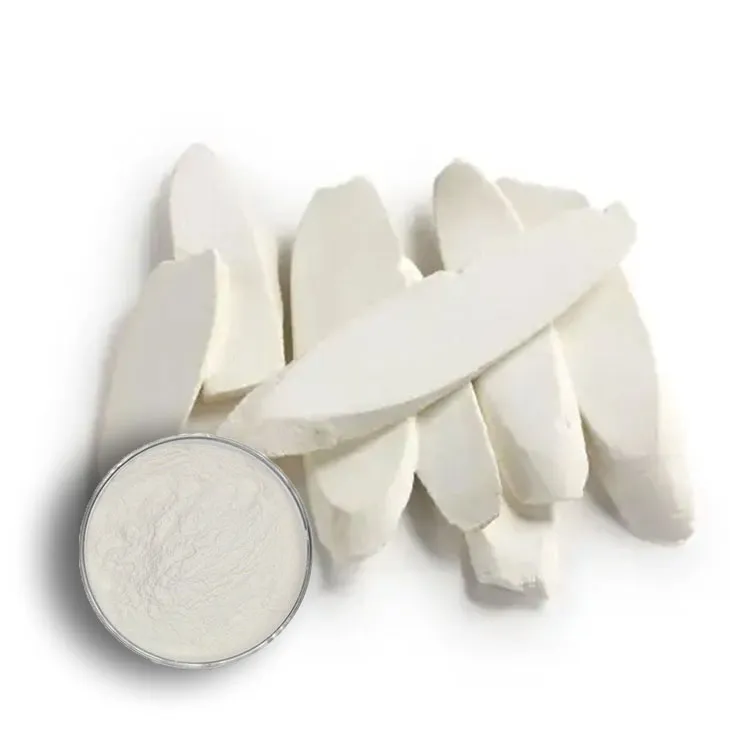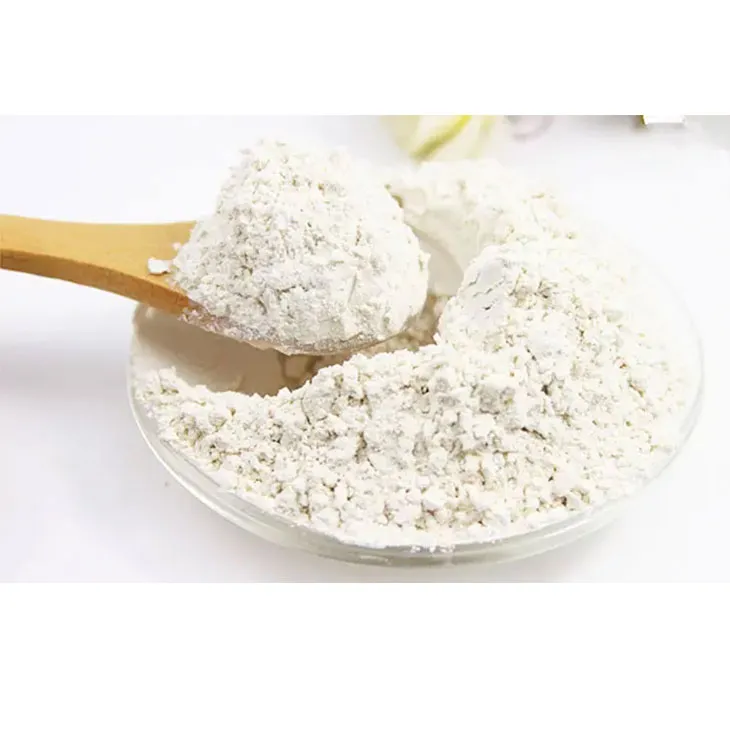- 0086-571-85302990
- sales@greenskybio.com
Yam Extract: Benefits, Uses and Possible Side Effects
2024-11-14

1. Introduction
Yam Extract has been gaining increasing attention in recent years due to its potential health - promoting properties. Yams are a staple food in many parts of the world and have a long history of use in traditional medicine. The extract derived from yams contains a variety of nutrients and bioactive compounds that may offer numerous benefits to human health. In this article, we will explore the various benefits, uses, and possible side effects of Yam Extract in detail.

2. Nutritional Composition of Yam Extract
Yam extract is rich in several important nutrients. One of the key components is dietary fiber, which plays a crucial role in maintaining digestive health. It also contains vitamins such as vitamin C, vitamin B6, and folate. These vitamins are essential for various bodily functions, including immune system support and the production of red blood cells. Additionally, yam extract contains minerals like potassium, which is important for heart health, and manganese, which is involved in the metabolism of carbohydrates, proteins, and fats.

3. Health Benefits of Yam Extract
3.1. Digestive Health
The dietary fiber in yam extract can have a positive impact on digestion. Fiber adds bulk to the stool, which helps to prevent constipation. It also promotes the growth of beneficial gut bacteria, which can improve gut motility and overall digestive function. By maintaining a healthy digestive system, yam extract may also help to reduce the risk of certain digestive disorders such as diverticulosis and irritable bowel syndrome.
3.2. Blood Sugar Regulation
Some studies suggest that yam extract may play a role in regulating blood sugar levels. The complex carbohydrates in yams are digested more slowly, which can lead to a more gradual increase in blood sugar compared to simple carbohydrates. Additionally, certain compounds in yam extract may enhance insulin sensitivity, allowing cells to better respond to insulin and take up glucose from the bloodstream. This could be beneficial for individuals with diabetes or those at risk of developing the condition.
3.3. Heart Health
The potassium content in yam extract is beneficial for heart health. Potassium helps to regulate blood pressure by counteracting the effects of sodium. By maintaining healthy blood pressure levels, yam extract may reduce the risk of heart disease, stroke, and other cardiovascular problems. Moreover, the fiber in yam extract can also help to lower cholesterol levels, further contributing to heart health.
3.4. Immune System Support
The vitamins and minerals present in yam extract, such as vitamin C and zinc, play important roles in supporting the immune system. Vitamin C is an antioxidant that helps to protect cells from damage and stimulates the production of white blood cells. Zinc is also essential for immune function, as it is involved in the development and activation of immune cells. By providing these nutrients, yam extract may help to strengthen the immune system and reduce the susceptibility to infections.
3.5. Anti - Inflammatory Properties
Yam extract may possess anti - inflammatory properties. Some of the bioactive compounds in yams have been shown to inhibit the production of inflammatory mediators in the body. Chronic inflammation is associated with a variety of health problems, including arthritis, heart disease, and certain cancers. By reducing inflammation, yam extract may potentially help to prevent or manage these conditions.

4. Uses of Yam Extract
4.1. In Medicine
- Diabetes Management: Due to its potential blood sugar - regulating effects, yam extract may be used as a complementary therapy in the management of diabetes. It can be incorporated into the diet or used in the form of dietary supplements to help control blood glucose levels.
- Digestive Disorders: For individuals with digestive problems such as constipation or irritable bowel syndrome, yam extract can be used to improve digestive function. It can be taken as a supplement or consumed as part of a fiber - rich diet.
- Immune - Boosting: In the field of immunology, yam extract may be used to enhance the immune system. This can be particularly useful during the cold and flu season or for individuals with weakened immune systems.
4.2. In Cosmetics
- Skin Health: Yam extract is rich in antioxidants, which can help to protect the skin from damage caused by free radicals. It may be used in skincare products such as creams and lotions to improve skin texture, reduce wrinkles, and promote a more youthful appearance.
- Hair Care: Some hair products may contain yam extract due to its potential to nourish the hair follicles. It can help to strengthen the hair, prevent hair loss, and improve the overall health of the hair.

5. Potential Side Effects of Yam Extract
While yam extract generally has many potential health benefits, it may also have some side effects in certain individuals. Allergic reactions are possible, especially in those who are allergic to yams or related plants. Symptoms of an allergic reaction may include itching, rash, swelling, or difficulty breathing. Additionally, consuming large amounts of yam extract may cause digestive discomfort such as bloating, gas, or diarrhea, due to its high fiber content. Pregnant and breastfeeding women should also be cautious when using yam extract, as there is limited research on its safety during these periods.
6. Conclusion
Yam extract is a natural product with a wide range of potential benefits for health, including digestive health, blood sugar regulation, heart health, and immune system support. It also has various uses in medicine and cosmetics. However, it is important to be aware of the possible side effects, especially for those with allergies or specific health conditions. More research is needed to fully understand the long - term effects and optimal usage of yam extract. Overall, yam extract shows great promise as a natural remedy and ingredient in various products, but it should be used with caution and under the guidance of a healthcare professional when necessary.
FAQ:
What are the main nutrients in yam extract?
Yam extract is rich in nutrients such as vitamins (like vitamin C, vitamin B6), minerals (including potassium, manganese), and dietary fiber. These nutrients play important roles in maintaining various functions in the body, for example, vitamins contribute to the normal functioning of the immune system and the metabolism, minerals are essential for bone health and nerve function, and dietary fiber helps with digestion.
How does yam extract enhance digestion?
The dietary fiber in yam extract is a key factor in enhancing digestion. It adds bulk to the stool, which helps in preventing constipation. Also, it can stimulate the movement of the intestines, promoting the regular passage of food through the digestive tract. Moreover, it may also act as a prebiotic, providing a favorable environment for beneficial gut bacteria, which in turn can improve overall digestive health.
Can yam extract really regulate blood sugar?
There is some evidence suggesting that yam extract may have the potential to regulate blood sugar. Some components in yam extract might affect the way the body processes glucose. However, it should not be considered a substitute for medical treatment for diabetes. People with diabetes should consult their doctors before using yam extract as a supplement to manage their blood sugar levels.
What are the uses of yam extract in medicine?
In medicine, yam extract has been studied for its potential anti - inflammatory properties. It may be used to relieve inflammation in certain conditions. Also, due to its potential effect on digestion and blood sugar regulation, it could be considered in the management of some digestive disorders and metabolic problems. However, more research is needed to fully establish its effectiveness and safety in medical applications.
Are there any side effects of using yam extract?
Some possible side effects of using yam extract may include allergic reactions in some individuals, especially those who are allergic to yams. Ingesting large amounts of yam extract may also cause digestive discomfort such as bloating or diarrhea, as the high fiber content can be overwhelming for the digestive system. Pregnant or breastfeeding women should also be cautious when using yam extract as its effects on fetal development and infants are not fully known.
Related literature
- The Nutritional and Therapeutic Properties of Yam Extract"
- "Yam Extract: A Comprehensive Review of Its Health Benefits and Risks"
- "Applications of Yam Extract in Medicine and Cosmetics"
- ▶ Hesperidin
- ▶ Citrus Bioflavonoids
- ▶ Plant Extract
- ▶ lycopene
- ▶ Diosmin
- ▶ Grape seed extract
- ▶ Sea buckthorn Juice Powder
- ▶ Fruit Juice Powder
- ▶ Hops Extract
- ▶ Artichoke Extract
- ▶ Mushroom extract
- ▶ Astaxanthin
- ▶ Green Tea Extract
- ▶ Curcumin
- ▶ Horse Chestnut Extract
- ▶ Other Product
- ▶ Boswellia Serrata Extract
- ▶ Resveratrol
- ▶ Marigold Extract
- ▶ Grape Leaf Extract
- ▶ New Product
- ▶ Aminolevulinic acid
- ▶ Cranberry Extract
- ▶ Red Yeast Rice
- ▶ Red Wine Extract
-
Shikone Extract
2024-11-14
-
Artichoke Extract
2024-11-14
-
Saw Palmetto Extract
2024-11-14
-
Citrus Aurantium Extract
2024-11-14
-
White mustard seed extract
2024-11-14
-
Diosmin
2024-11-14
-
Clove Powder
2024-11-14
-
Fenugreek Extract Powder
2024-11-14
-
Bayberry Extract
2024-11-14
-
Pueraria Lobata Extract
2024-11-14





















